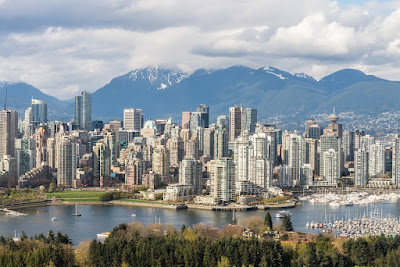In the intricate tapestry of our economy, every thread plays a vital role in shaping the overall picture. Among these threads, the minimum wage holds a significant position. Beyond being a simple paycheck, it exerts a profound influence on the local economy, a fact that becomes all too evident when we delve into the relationship between low minimum wages, the community's financial well-being, and the trajectory of housing prices. In this blog post, we'll unravel the complex web that links these elements, shedding light on how low minimum wages can send shockwaves through the heart of a locality.
The Local Economy: A Delicate Ecosystem
A thriving local economy is a symbiotic relationship, with businesses, workers, and consumers interwoven in a delicate dance. When the minimum wage remains stagnant or inadequately low, it casts a shadow over this equilibrium. Picture a scenario where workers are struggling to make ends meet, unable to invest in local goods and services beyond the essentials. This directly impacts businesses, causing reduced demand and, in turn, prompting cutbacks or layoffs. As a result, the vibrancy of the local marketplace diminishes, a testament to the inextricable link between the financial stability of workers and the prosperity of businesses.
Housing Prices: A Ripple Effect
Now, let's segue into the realm of housing prices, a realm where affordability and accessibility often collide. When minimum wages fail to keep pace with the rising cost of living, the dreams of homeownership are relegated to the periphery for many. As families and individuals grapple with stagnant wages, their ability to secure a place to call home becomes a distant reality. In a twisted paradox, low minimum wages contribute to a phenomenon where housing prices spiral upward, creating a chasm between aspirations and attainability.
A Dual Impact: Local Economy and Housing Prices
The connection between low minimum wages, the local economy, and housing prices is more intertwined than it seems. As local economies struggle due to reduced consumer spending, businesses may falter, leading to job losses and economic contraction. Simultaneously, the pressure on housing markets intensifies. Demand for affordable housing swells, yet the financial means to secure it remain constrained. This dual impact can set off a cycle where a weakened local economy contributes to unaffordable housing, and unaffordable housing further weakens the local economy.
Breaking the Cycle: A Call for Equitable Wages
The interplay between low minimum wages, the local economy, and housing prices is a wake-up call for policy makers, businesses, and communities alike. To break this cycle, it's imperative to recognize the interconnectedness of these factors and address them collectively. By setting equitable minimum wages that reflect the true cost of living, we can empower workers to engage more actively in the local economy. This increased purchasing power fuels business growth and ultimately nurtures a healthier economic ecosystem.
The Living Wage in Toronto is $28.50. We need to embrace it. Employees and employers need to start using that as the bare minimum.
Conclusion
The relationship between low minimum wages, the local economy, and housing prices underscores the intricate balance that defines our communities. As advocates for sustainable growth and social progress, we must champion policies that ensure fair wages for all. By doing so, we lay the foundation for an economy where businesses thrive, workers prosper, and housing remains accessible. The ripple effect of change starts with a single commitment: to forge an environment where every thread of our economic fabric contributes to a tapestry of prosperity.














